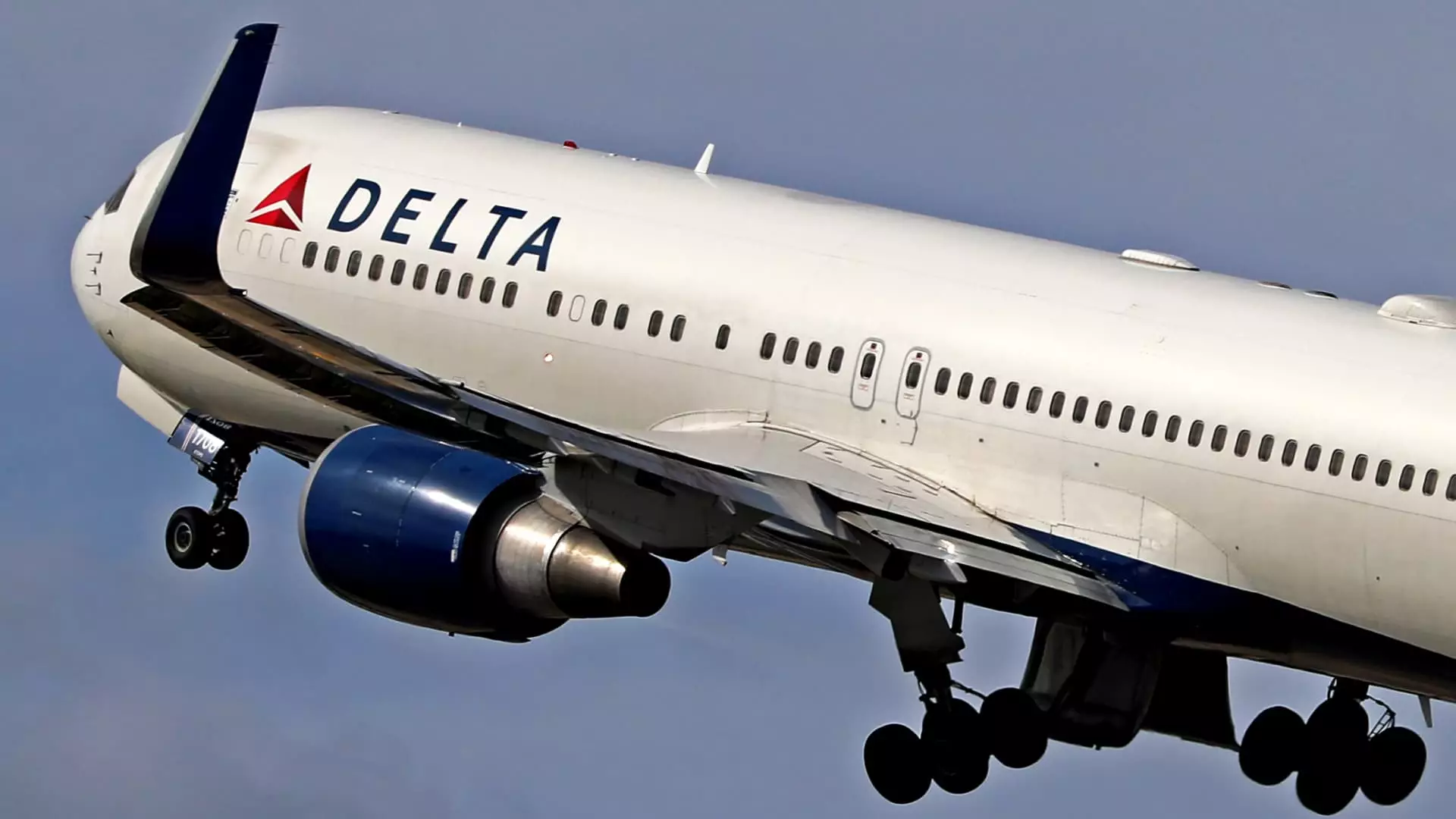The airline industry is facing severe turbulence as market sentiments swerve downward. On Tuesday, airline stocks experienced notable declines—a staggering trend that has market analysts gripping their calculators in concern. Investor apprehension stemmed from reports of declining travel demand, with a significant nosedive in consumer confidence also rearing its ugly head. As a result, major players like Delta Air Lines suffered over a 3% drop, following a downgrade from Jefferies, a financial services firm that significantly trimmed predictions for the airline’s future growth. This isn’t just a blip; it signifies deeper issues within an industry that thrived during the pandemic recovery.
Delta’s Failing Flight: A Deeper Look
Delta, once considered a beacon of profitability within the airline sector, is showing red flags. The downgrade to a hold rating, alongside a drastically reduced price target of $46, tells us that not all is rosy in the skies. Jefferies indicated that Delta might strip down its 2025 revenue forecasts, placing a cloud of uncertainty over the airline’s operational strategy. Despite Delta’s assertions of increased revenue from premium offerings and credit card partnerships, reliance on high-end travel raises questions about sustainability amidst an economic landscape that seems increasingly price-sensitive. Are they truly prepared for a future where budget constraints dictate travel trends?
The Ripple Effect: A Stunning Overview
The repercussions of this downturn are being felt systemwide. With Jefferies also downgrading American Airlines, Southwest Airlines, and Air Canada—which is particularly vulnerable due to its cross-border exposure—the question remains: Is this a temporary setback or a precursor to a more systemic problem within air travel? United Airlines still stands as a positive in the sector, but even it has seen its price targets lobbed downward by nearly half. The narrative of hopeful rebounds in domestic travel seems to be fading, especially when executives from multiple airlines raised alarms about softer-than-expected demand during a recent industry conference.
Consumer Behavior: The Heart of the Matter
At the core of this crisis lies shifting consumer behavior. A report from Bank of America noted a 7.2% decline in airline spending, juxtaposed against a modest 1.5% increase in overall household spending. The unsettling conclusion? Hesitation is reigning among would-be travelers. External factors, such as unpredictable weather patterns and holiday timing, are being blamed for some of this decline. Yet one must ponder whether the grim undercurrents of reduced consumer confidence are at the forefront. Is this the moment when travelers—faced with economic uncertainty—begin to reconsider their travel budgets?
A Sector in Crisis: The Broader Implications
The NYSE Arca Airline Index has now fallen a jaw-dropping 18% in the first quarter of 2023, outpacing the decline of the S&P 500 and marking the single largest drop for the airline sector in months. The size of the decline is staggering and is raising alarms about the stability of an industry that was just beginning to regain its footing. It brings to light a critical question: how much longer can this sector endure such pressure without significant structural changes? As we move forward, it seems likely that airlines may need to scramble to redefine their strategies or face inevitable consolidations. One thing is clear—the skies are not as friendly as they once appeared.

